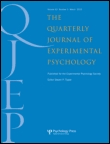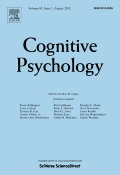
Multisensory Research
Scope & Guideline
Integrating Insights Across Sensory Modalities
Introduction
Aims and Scopes
- Multisensory Integration Mechanisms:
The journal focuses on the underlying processes and neural mechanisms involved in multisensory integration, investigating how different sensory modalities combine to influence perception and behavior. - Crossmodal Correspondences:
Research exploring the relationships between different sensory modalities, such as how auditory stimuli can influence visual perception and vice versa, is a key area of focus. - Developmental and Clinical Perspectives:
The journal includes studies on how multisensory processing develops over the lifespan and how it may be altered in various clinical populations, including individuals with autism, dyslexia, and sensory processing disorders. - Applications in Technology and Therapy:
Research that applies findings from multisensory perception to fields such as virtual reality, rehabilitation, and sensory therapies is also emphasized, showcasing the practical implications of multisensory studies. - Cognitive and Behavioral Outcomes:
The journal investigates how multisensory experiences affect cognitive functions, such as memory and attention, as well as behavioral outcomes in different contexts.
Trending and Emerging
- Impact of COVID-19 on Sensory Function:
Recent publications have highlighted the effects of COVID-19 on sensory functions, particularly olfactory perception, indicating a growing interest in understanding the multisensory implications of health crises. - Neuroscientific Approaches to Multisensory Processing:
There is an increasing trend towards employing neuroscientific methods, such as TMS and neuroimaging, to investigate multisensory integration, reflecting a desire to understand the neural basis of these complex processes. - Application of Multisensory Research in Technology:
Emerging themes show a focus on the application of multisensory principles in technology, particularly in virtual reality and interactive systems, demonstrating the relevance of multisensory research in modern technological contexts. - Individual Differences and Sensory Processing:
Research examining how individual differences, such as autistic traits or sensory sensitivities, influence multisensory integration is gaining traction, suggesting a shift towards personalized approaches in understanding sensory processing. - Crossmodal Effects in Learning and Memory:
There is a growing interest in how multisensory experiences can enhance learning and memory, particularly in educational contexts, indicating the practical implications of multisensory research in pedagogy.
Declining or Waning
- Traditional Sensory Modalities:
Research focusing exclusively on traditional sensory modalities (like vision or hearing in isolation) is becoming less common as the field moves towards more integrative studies that emphasize multisensory interactions. - Basic Psychophysical Studies:
Papers focusing solely on basic psychophysical measurements without a multisensory context are less frequent, indicating a shift towards more complex, real-world applications of multisensory research. - Static Sensory Interactions:
Studies that examine static or non-interactive sensory stimuli are declining as the journal increasingly prioritizes dynamic, interactive multisensory experiences that reflect real-life situations.
Similar Journals

PERCEPTUAL AND MOTOR SKILLS
Pioneering Discoveries in Experimental and Cognitive PsychologyPERCEPTUAL AND MOTOR SKILLS is a distinguished academic journal published by SAGE Publications Inc, primarily focusing on the disciplines of Experimental and Cognitive Psychology as well as Sensory Systems. With a legacy dating back to its inception in 1962 and continuing through to 2024, this journal serves as a vital resource for researchers and professionals in understanding the complexities of perception and motor processes. Although it currently holds a Q3 status in major categories, it consistently contributes to the discourse of these critical fields, ranking within the 40th and 29th percentiles for its respective categories according to Scopus metrics. While not an open-access journal, PERCEPTUAL AND MOTOR SKILLS remains a reputable platform for disseminating research findings, ensuring that insights on human perception and motor function are accessible to a broader academic audience. With an aim to advance scholarly discussion and foster innovative research, this journal is an essential read for those endeavoring to explore the rich interplay between perceptual mechanics and motor skills.

JOURNAL OF VISION
Exploring the Depths of Vision ResearchThe JOURNAL OF VISION, published by the ASSOCIATION FOR RESEARCH IN VISION AND OPHTHALMOLOGY INC, stands as a premier platform in the fields of Ophthalmology and Sensory Systems. Since its inception in 2001, this Open Access journal has worked to disseminate innovative research and groundbreaking discoveries that advance our understanding of vision science. With an impressive impact factor and ranked in the Q2 quartile for both Ophthalmology and Sensory Systems categories as of 2023, it offers a remarkable avenue for scholars and practitioners alike to share their insights and foster collaboration. Based in the United States, the journal maintains a commitment to accessibility, allowing researchers worldwide to engage with its comprehensive body of work. The JOURNAL OF VISION not only enhances the global dialogue around ocular health and sensory processing but also serves as an essential resource for professionals aiming to stay at the forefront of vision research.

PSYCHOLOGIA
Connecting Minds through Groundbreaking ResearchPSYCHOLOGIA is a distinguished academic journal published by the Psychologia Editorial Office, focusing on the broad field of psychology. Originating from Japan, the journal serves as a platform for innovative research and insights into various psychological phenomena, contributing significantly to the advancement of psychological knowledge since its establishment in 1996. With an ISSN of 0033-2852 and an E-ISSN of 1347-5916, PSYCHOLOGIA primarily targets researchers, professionals, and students who are passionate about the intricacies of human behavior and cognition. Currently categorized in the Q4 quartile of psychology (miscellaneous) based on 2023 metrics, it holds a Scopus rank of #157 out of 216, indicating its developing presence within the academic community. Despite being published without open access options, the journal remains committed to fostering scholarly dialogue and disseminating significant findings that shape contemporary psychological research. As it converges towards its issue set for 2024, PSYCHOLOGIA continues to be an essential resource for those seeking to deepen their understanding of psychological sciences.

Neuroscience of Consciousness
Exploring the Intricacies of Consciousness through NeuroscienceNeuroscience of Consciousness, published by Oxford University Press, stands at the forefront of interdisciplinary research in the realms of clinical psychology, experimental and cognitive psychology, neurology, and psychiatry. Since its inception as an Open Access journal in 2015, it has garnered a prestigious reputation, consistently ranking in the Q1 category across multiple fields, including a remarkable 15th rank in Experimental and Cognitive Psychology and 44th in Neurology. This journal serves as a vital resource for researchers, professionals, and students aiming to explore the complexities of consciousness through the lens of neuroscience. By providing a platform for original research, reviews, and critical analyses, Neuroscience of Consciousness enables the dissemination of innovative ideas and findings that contribute to the advancement of knowledge in this crucial area of study. Its open access model ensures that groundbreaking research is readily available to a global audience, further solidifying its impact in the academic community.

QUARTERLY JOURNAL OF EXPERIMENTAL PSYCHOLOGY
Exploring the Depths of Human CognitionQuarterly Journal of Experimental Psychology, published by SAGE Publications Ltd, is a leading peer-reviewed journal that serves as a vital resource in the fields of experimental and cognitive psychology, neuropsychology, and medicine. With an impactful contribution to psychological research, the journal is recognized for its rigorous methodology and empirical studies, holding a notable ranking among its peers—finding itself in the Q2 quartile across several categories. With its origin tracing back to 2006, Quarterly Journal of Experimental Psychology significantly influences the academic discourse until its latest published findings in 2024. Catering to a diverse audience of researchers, professionals, and students, this journal provides Open Access options, enhancing the reach and accessibility of cutting-edge psychological research. By focusing on innovative approaches and findings, it aims to bridge theoretical understanding with practical application, hence fostering advancement in multiple related disciplines. For those committed to understanding the complexities of human behavior and cognitive processes, this journal remains an essential reference point.

Attention Perception & Psychophysics
Innovating Research in Psychophysics and AttentionAttention Perception & Psychophysics is an esteemed academic journal published by Springer, specializing in the fields of experimental and cognitive psychology, linguistics and language, as well as sensory systems. With an impressive impact factor reflected in its classification as Q2 in Experimental and Cognitive Psychology and Q1 in Linguistics and Language for 2023, the journal promotes cutting-edge research and theoretical insights into how perception, attention, and psychophysical processes shape human cognition. Its accessibility through diverse open access options ensures that pioneering research is available to a global audience, fostering collaborative advancement in the cognitive sciences. As a vital resource for researchers, professionals, and students, Attention Perception & Psychophysics serves as a significant platform for disseminating innovative findings and engaging with contemporary debates within the dynamic landscape of psychology and related disciplines.

ANIMAL COGNITION
Unlocking the Secrets of Animal Thought and BehaviorANIMAL COGNITION is a prestigious academic journal dedicated to the exploration of cognitive processes in non-human animals, bridging the fields of ecology, evolution, behavior, and cognitive psychology. Published by Springer Heidelberg in Germany, this journal has established itself as a leading platform for innovative research since its inception in 1998, showcasing important findings that enhance our understanding of animal minds. With an impressive impact factor reflected in its Q2 rankings within both the Ecology, Evolution, Behavior, and Systematics and Experimental and Cognitive Psychology categories, ANIMAL COGNITION serves as an invaluable resource for researchers, professionals, and students alike. Although it currently does not offer open access, the journal's rigorous peer-review process ensures the highest quality of published research, making it a vital component of scholarly discourse in the study of animal cognition. As the journal continues to evolve into 2024 and beyond, it remains committed to advancing our knowledge while inspiring future generations of researchers in this fascinating field.

PSYCHONOMIC BULLETIN & REVIEW
Innovating the Intersection of Arts, Humanities, and Psychology.PSYCHONOMIC BULLETIN & REVIEW is a premier journal published by SPRINGER, dedicated to advancing the fields of psychology, particularly within the domains of Arts and Humanities, Developmental and Educational Psychology, and Experimental and Cognitive Psychology. With its ISSN 1069-9384 and E-ISSN 1531-5320, the journal serves as a vital resource for researchers, professionals, and students striving to stay at the forefront of psychological science. The journal boasts an impressive impact factor and ranks in the top quartile (Q1) in relevant categories, reflecting its prestigious standing in the academic community. Covering research from 1994 to 2024, it offers rich interdisciplinary insights into psychological processes and theoretical developments, supporting researchers in disseminating their findings effectively. While not an open-access journal, it provides various access options to ensure that vital research remains within reach of its audience. With a commitment to fostering scholarly dialogue and innovation, PSYCHONOMIC BULLETIN & REVIEW plays an indispensable role in shaping contemporary psychological discourse.

Cognitive Processing
Unraveling the complexities of cognition with every issue.Cognitive Processing, published by SPRINGER HEIDELBERG in Germany, is a leading journal dedicated to advancing the understanding of cognitive processes through interdisciplinary research. With its ISSN 1612-4782 and E-ISSN 1612-4790, the journal covers a diverse range of fields including Artificial Intelligence, Cognitive Neuroscience, and Experimental and Cognitive Psychology, making it an invaluable resource for researchers and professionals alike. While it currently does not operate under an Open Access model, it is well-regarded within the academic community, holding a respectable impact factor and ranking in the Q2 and Q3 quartiles as of 2023. The journal aims to foster innovation and collaboration among scholars, presenting high-quality original research, reviews, and theoretical discussions that bridge the gap between cognitive science and its practical implications. With a convergence of research from 2005 to 2024, Cognitive Processing continues to play a critical role in the evolving landscape of cognitive science literature.

COGNITIVE PSYCHOLOGY
Pioneering Research in Cognitive PsychologyCOGNITIVE PSYCHOLOGY is a premier academic journal published by Academic Press Inc. Elsevier Science, specializing in the dynamic and evolving field of cognitive psychology. With a significant history spanning from 1970 to 2024, this journal has established itself as a critical resource for researchers and professionals alike, boasting a distinguished ranking in the Q1 category across multiple disciplines, including Experimental and Cognitive Psychology, Neuropsychology, and Artificial Intelligence. Its impact factor, reflective of its influence and reputation within the academic community, positions COGNITIVE PSYCHOLOGY as an essential platform for disseminating cutting-edge research and theoretical advancements. Although it is not open access, subscribers gain exclusive insights into the latest findings that drive the field forward. The journal's commitment to fostering innovative research makes it an indispensable tool for those dedicated to understanding the complexities of human cognition.